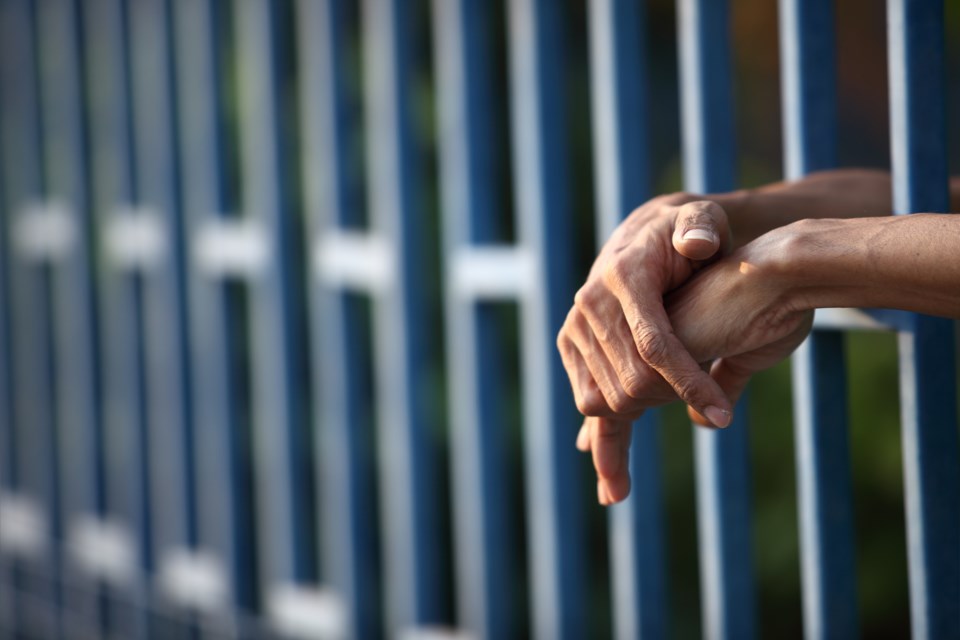A COVID-19 vaccination plan for federal inmates is fuelling a riot of controversy.
Starting Friday, an initial rollout of COVID-19 vaccines will be sent to federal prisons across Canada. The Moderna vaccine will be received by 600 inmates over the span of a few weeks.
In response to that news, Conservative Party leader Erin O’Toole tweeted Tuesday evening that “not one criminal should be vaccinated ahead of any vulnerable Canadian or front-line health worker."
John Brassard, the Conservative MP representing Barrie-Innisfil, said he believes the main focus should instead be long-term care facilities, which are being hit the hardest by the virus.
“We are seeing a huge amount of deaths in our long-term care facilities, a number that makes up more than any other demographic in Canadian deaths,” Brassard said. “Of the 1,146 cases in Canadian corrections facilities, there have been three deaths.
"I’m not trying to take anything away from anyone in the country’s prisons, but let's get real about vulnerability," he added.
Several prisoner advocacy groups did not respond to requests for comment on the vaccination plan by publication time.
Dr. James Worthington, the national medical advisor for Correctional Service Canada (CSC) that oversees federal penitentiaries, declined to comment on O’Toole’s tweet or the politics behind it. But he said he still has a job to do.
“My role is to provide health care to individuals in the corrections system and I am guided by national health,” Worthington said.
Worthington said health-care workers who deal directly with federal inmates are a part of the vaccination plan's first phase involving inmates who are 70 and older, while prison staff will be part of second phase with other lower-risk inmates.
Under the Corrections and Conditional Release Act, CSC has an obligation to provide essential health care to federally incarcerated inmates. As such, the vaccine will be administered to federal inmates by CSC health-care professionals.
CSC has also been working closely with the Public Health Agency of Canada and has begun receiving doses of the Moderna vaccine, which was recently approved by Health Canada.
Jeff Wilkins, president of the Union of Canadian Correctional Officers (UCCO-SACC-CSN), said he's concerned with the CSC's plan and said he has many questions about the plan for his workers.
“This has not been well communicated with myself or with the union by Correctional Service Canada,” Wilkins said. “It is a plan that doesn’t make a lot of sense in how they have decided to do it.”
Wilkins argues his staff members are front-line workers and should be treated as such.
“The priority should be our membership. To be fair, that is how it is being done throughout the country, with front-line health-care workers being vaccinated first, as they will tend to the residents in long-term care homes,” he said.
“Shouldn’t that idea apply here as well? Vaccinate the staff at correctional facilities as they will be working with those in, essentially, communal living spaces.”
Wilkins said the CSC's plan is also flawed because the vaccine distribution isn’t going to reach those where it is needed.
“There are doses being spread out across the country, and they’ll be shipped to places with little to no cases while other facilities get minimal though they have hundreds of cases,” he said. “Springhill Institution in Nova Scotia has zero cases and Mission Institution (in British Columbia) has over 100.
"It just needs to be better planned," Wilkins added.
As for provincial prisons, Ontario Solicitor General Sylvia Jones said long-term care residents remain the priority, but that will change as more vaccination doses become available.
“We have made it very clear that our priorities are going to be long-term care residents, the staff that work within those facilities as well as health-care workers and critical volunteers who are in those facilities,” Jones said during a news conference Wednesday.
“In terms of moving forward, as we continue to vaccinate, certainly group homes, homes that have developmentally disabled adults and children and congregate living like our correctional facilities will be in the queue," she added.
With a provincial correctional facilities in his riding — Central North Correctional Centre in Penetanguishene — and another just outside with Beaver Creek Institution in Gravenhurst, Simcoe North MP Bruce Stanton said he believes any decision around vaccinating those in custody could also be good for people who work in such facilities.
“I think we all agree that our long-term care facilities need a lot of attention and have been hardest hit, but I can only assume these shots are going to benefit not only inmates but staff as well,” said the Conservative MP. “We have correctional staff in our riding and I would hope they could be protected while at work.
“I don’t want to paint this as an inmates-versus-non-inmates situation," Stanton added.



